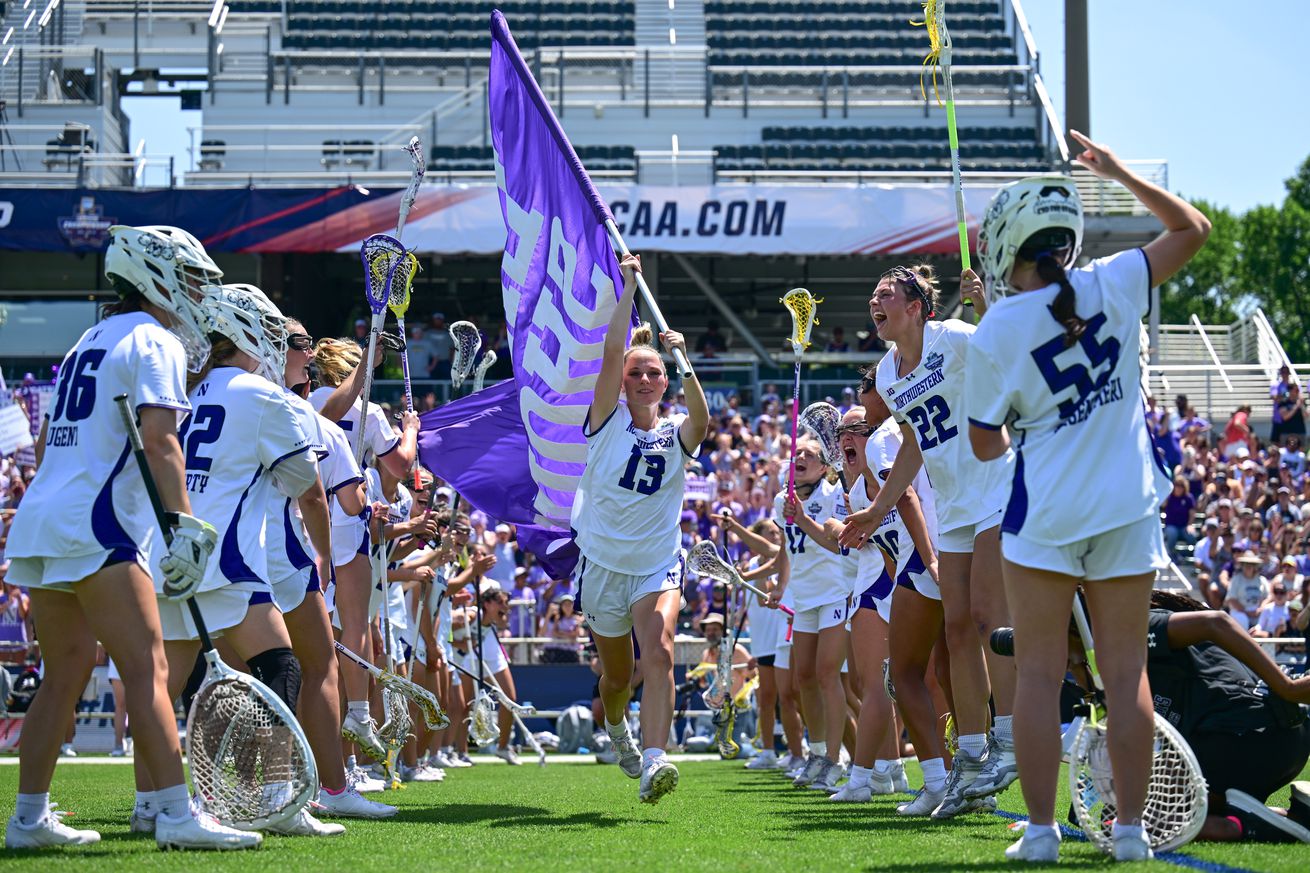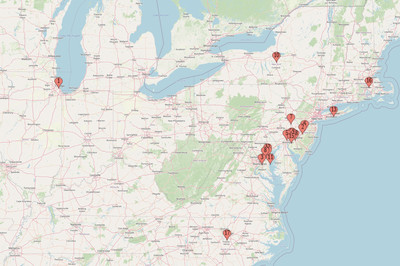
Hosting an NCAA lacrosse championship in the Midwest is a historic opportunity. But can it work out?
Northwestern University and the city of Evanston will host the 2026 NCAA Division I Women’s Lacrosse Championship, with the NCAA semifinals and title game set to be played at Northwestern Medicine Field at Martin Stadium. Northwestern Medicine Field at Martin Stadium replaces Gilette Stadium in Foxborough, Massachusetts (the 2025 championship hosts) as a host, as the latter stadium was named a host for the 2026 FIFA Men’s World Cup.
This hosting assignment marks the first time the NCAA DI Women’s Lacrosse Championship will be held outside the East Coast. Over the first 43 years of the championship’s history, it has only been hosted across the six states of New Jersey, Pennsylvania, Massachusetts, Maryland, New York and North Carolina, with North Carolina hosting for the first time in 2023.
In other words, Evanston will be the furthest west the championship travels by a considerable margin.

Northwestern has a history of pushing women’s lacrosse beyond its geographical boundaries. The Wildcats are the only non-East Coast team to have won both a national title and a Tewaaraton award, and head coach Kelly Amonte Hiller is known for recruiting outside of traditional lacrosse hotbeds. Five of Northwestern’s nine Tewaaraton award finalists come from areas outside the East Coast. Izzy Scane, the NCAA Division I career goals leader, is one of just two Tewaaraton winners from the Midwest.
Evanston hosting women’s lacrosse’s biggest annual event may further propel the sport beyond the East Coast. If marketed properly, the 2026 championship could reach a massive Chicago market (especially if Northwestern plays), including youth lacrosse players and other potential fans. Northwestern hosted the 2024 Big Ten Tournament and set an attendance record of 2,012 when the Wildcats played Penn State in the championship game. Although the renovated Martin Stadium is much bigger and holds a capacity of 12,023, last spring proved that NU can successfully host major lacrosse tournaments in its stadium.
Playing a national championship game on campus can also boost lacrosse’s popularity amongst the Northwestern fanbase and student body. A women’s lacrosse team hasn’t hosted a title game on its campus since Maryland in 1994 and a host hasn’t won a title game since Maryland in 1986. Competing for a championship at home is a historic and once-in-a-lifetime experience that could draw the attention of even those who don’t typically follow Northwestern lacrosse.
However, there are concerns about hosting the championships in an area not traditionally known for lacrosse. The NCAA experimented with this by hosting the Final Four at the WakeMed Soccer Park in Cary, North Carolina for the past two seasons, but the attendance for the 2024 national title game was just 4,884 — less than half the stadium’s total capacity of 10,000. Meanwhile, the 2022 title game at Homewood Field in Baltimore had an attendance of 8,550. Notably, neither the 2023 nor the 2024 Final Four featured hometown team North Carolina, three-time national champions in women’s lacrosse.
Many attendees at the 2024 Final Four admitted they would have preferred the women’s championship to be held in Philadelphia, a much more lacrosse-crazy area where the men’s DI and DIII Final Fours were being played. Had the tournament been in Philadelphia, several Northwestern players would have had larger support groups of relatives who lived near the area in attendance. Lacrosse is a sport where everyone knows everyone and supporters travel in droves — congregating fans in a familiar place may provide a better experience than exploring the unknown.
In addition, Northwestern struggles with attendance and relies on other Big Ten fanbases to fill up the seats in revenue sports like football and men’s basketball. How will it fare with a sport that’s way more niche in the Midwest?
Those are all concerns that Northwestern and the city of Evanston will have to tackle in the future. But regardless of what it means on a broader scale, it’s a tremendous opportunity for the university. If Kelly Amonte Hiller hadn’t built Northwestern Lacrosse from the bottom up two decades ago, or if NU hadn’t invested in lacrosse facilities the way it did, an NCAA lacrosse championship in the Midwest would have been unfathomable.
In the next year, Northwestern must do everything it can to prove that hosting will be worth it. But for now, it can pat itself on the back for making history in women’s lacrosse, just like it has done so many times before.
